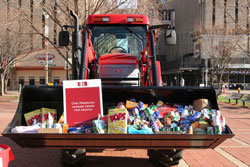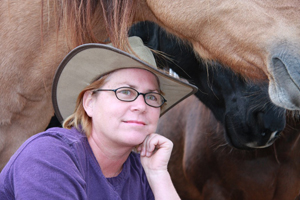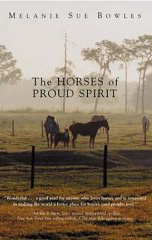
Osborn & Barr Acquires Elasticity
 Since I just did a post on Osborn & Barr why not another one. I learned on a phone call with the company this week that they’ve acquired a social media company, Elasticity, which is now a wholly owned subsidiary of the agency. They’re looking for a summer intern for the new division too.
Since I just did a post on Osborn & Barr why not another one. I learned on a phone call with the company this week that they’ve acquired a social media company, Elasticity, which is now a wholly owned subsidiary of the agency. They’re looking for a summer intern for the new division too.
Key Responsibilities:
Update, promote and publicize social networking sites for clients;
Develop and participate in blogs;
Manage content and increase supporter numbers on social networking properties such as Digg, Twitter, Facebook, FriendFeed, YouTube, Second Life, Care2, MySpace, Wikipedia, external blogs and more;
Online and database research and reporting responsibilities;
Adapting appearance of social networking presences to be more visually appealing;
Communicating with members and supporters of social sites and networks by using frequent bulletins and messages;
Researching and assisting in the creation of new applications;
Identifying new opportunities for engagement in social networking spaces.
These sound like the responsibilities every company needs to have in their staff.
Ag Day Activities
 I’m sure a lot of you are doing what you can to thank American farmers on National Agriculture Day. Feel free to share what you’re doing and include pictures if you have them. Here’s what Osborn & Barr is doing in St. Louis. Post Update: The photo is of the tractor described below mid day on Ag Day.
I’m sure a lot of you are doing what you can to thank American farmers on National Agriculture Day. Feel free to share what you’re doing and include pictures if you have them. Here’s what Osborn & Barr is doing in St. Louis. Post Update: The photo is of the tractor described below mid day on Ag Day.
Tractor display and food drive at Kiener plaza fights hunger and champions regional agribusiness
Kiener Plaza may play host to some of St. Louis’ most vibrant urban businesses, but it still sprawls under the shadow of the Arch – the Gateway to the West and a dramatic symbol of this city’s ties to a passionate, inquisitive and agrarian foundation.
 National Agriculture Day recognizes and celebrates the abundance provided by agriculture. Food production is an importation part of agriculture, and during a time of economic instability, the need for affordable and healthful food is in high demand.
National Agriculture Day recognizes and celebrates the abundance provided by agriculture. Food production is an importation part of agriculture, and during a time of economic instability, the need for affordable and healthful food is in high demand.
In recognition of National Agriculture Day, food donations are being accepted at Kiener Plaza. Look for the red tractor – the quintessential symbol of agriculture – on display. The goal is to fill the tractor’s loader (bucket) with food to benefit the St. Louis Food Bank. The event is sponsored by Osborn & Barr Communications, the nation’s leading agriculture and rural marketing agency. Many of its professional staff of more than 100 grew up on farms or still farm. Members will be onsite to assist with the food drive.
Date and Location:
Friday, March 20, 2009
8 a.m. to 1 p.m. (Donations will be accepted during this time)
Kiener Plaza, 500 Pine St.
Get Some Solar On This Day
 We’ve got Ag Day, Earth Day and now Solar Day. I hope we have a sunny one here in mid MO.
We’ve got Ag Day, Earth Day and now Solar Day. I hope we have a sunny one here in mid MO.
Move over Earth Day. There’s a new environmentally friendly semi-holiday coming up, and it’s none other than Solar Day. This day doesn’t just thank the sun for shining, though. It’s meant to educate the public about the benefits of using solar energy, and how residents can take advantage of solar options in their areas. Solar Day 2009 will be held all throughout the United States on the first day of summer, which lands on Sunday, June 21 this year. If your interest is piqued by this news, be sure to check out SolarDay.com, the official home of Solar Day, and a portal for all sorts of news on the solar industry.
Twitter on the Today Show
I caught The Today Show this morning, and I was excited to see an entire segment dedicated to the Twitter phenomenon! Some people love it; some people hate it. However, there is no denying that this social network is here to stay! The Today Show segment explains it as a cross between text and blogging with 140 characters. It goes to the masses, and it’s a great way to spread the word. It’s like an amped up word-of-mouth service, and it’s free!
Once apprehensive about it, I’m totally hooked! Do you Twitter? Who do you follow on Twitter? How do you decide who is worth listening to? Why do we care what’s going on in the lives of others? I’m a curious tweeter that wants to know! Watch this video here for tweeting vocab, tips and an explanation of this craze that’s hard not to love! Oh, and you can follow my tweets at http://twitter.com/AmandaNolz. Let’s be online social networking friends!
It
Visit msnbc.com for Breaking News, World News, and News about the Economy
Soybean Premiums.org Connects Companies & Suppliers
 There’s a new website to help connect soyfoods companies with soybean suppliers.
There’s a new website to help connect soyfoods companies with soybean suppliers.
The Soyfoods Association of North America (SANA) is committed to helping soyfoods companies connect with soybean suppliers. Soybeans are used to provide a wide range of products including edamame, soymilk, soy-based meat alternatives, tofu, tempeh, miso, shoyu, natto, soy yogurt, non-dairy frozen desserts, nutrition bars, chips, and cereals. Soyfood manufacturers in America welcome a supply of high quality soybeans that meet their diverse needs. The web site, www.soybeanpremiums.org, developed by the Illinois Soybean Association and sponsored by the Iowa Soybean Association and the Indiana Soybean Alliance, easily connects soyfood companies with growers of a wide variety of premium soybeans.
Brand New Member of Team ZIP
 Have you heard of Team ZIP? When you discover the power of protein in the land of lean beef, you can be sure that Team ZIP is close by! I recently signed up for the Brookings 40th Annual Half Marathon, and my sister and I are going to tackle 13.1 miles wearing Team ZIP jerseys (Beef is a great source of zinc, iron and protein!) There are hundreds of people that have teamed up with beef, and they blog about their experiences at the Team ZIP blog spot. Here is a description of this exciting group…
Have you heard of Team ZIP? When you discover the power of protein in the land of lean beef, you can be sure that Team ZIP is close by! I recently signed up for the Brookings 40th Annual Half Marathon, and my sister and I are going to tackle 13.1 miles wearing Team ZIP jerseys (Beef is a great source of zinc, iron and protein!) There are hundreds of people that have teamed up with beef, and they blog about their experiences at the Team ZIP blog spot. Here is a description of this exciting group…
The Power of Protein is all about experiencing the body benefits of eating beef and building lean muscle as you train for running, cycling, triathlon or other athletic events — or just in living a healthy, active lifestyle. If you are a beef eater and an athlete (weekend warriors welcome!), join Team ZIP (Zinc/Iron/Protein) to “Live the Brand” and demonstrate the “Power of Protein in the Land of Lean Beef.”
I’m excited to represent the beef industry in my first half marathon, and I’m thrilled to explore new marketing strategies to enhance the beef brand! Hey, a girl has to ditch her laptop once in awhile to get some fresh air; it might as well be for a good cause! To join Team ZIP or order a “Beef, It’s What’s For Dinner Jersey,” contact Daren Williams at dwilliams@beef.org. In the meantime, I will keep all of you updated on my training, my lean beef recipes and my progress as I promote the industry that I love! Beef, it’s what’s for dinner!
The OMSHville B.O.R.E Method
I’m addicted to several blogs that I read each day, including one titled OMSH, Oh My Stinkin’ Heck. OMSH is the creation of blogger and web designer, Heather Sanders, and she is full of great ideas to increase readership to your own personal websites. I ran across this blog post titled, “The OMSHville B.O.R.E. Method,” that I have found to be useful in my online efforts with blogs and social networks. OMSH recommends a three-step process called the B.O.R.E. Method that will help you succeed in your own online strategies.
First, OMSH says that bloggers need to be attentive to, and timely in, their correspondence. Interacting with the readers is a great way to create an online community. Take the time for the people that take time to read what you have to say. Second, don’t forget there is give and take. OMSH recommends several ideas to accomplish this including: Q&A sessions, giveaways, do-it-yourself tutorials, host an online forum, etc. Finally, the third step is to check your pride at the door. It’s important to keep learning and growing as fast readership grows.
For the full blog post, head to OMSH and read, “The OMSHville B.O.R.E. Method.” It was definitely a refreshing take on the classic blog lessons we have all learned along the way. And, while we’re talking about lessons learned, do you have any tricks you have picked up along the way to maintain a dynamic site for users to consume? Let’s compare notes; I’m excited to hear your thoughts!
Tweeting Biodiesel
 Want an example of how one group is using Twitter in a very coordinated way? Check out the National Biodiesel Board.
Want an example of how one group is using Twitter in a very coordinated way? Check out the National Biodiesel Board.
Today several of us have joined Twitter, to help answer your questions and discuss anything you feel like talking about in the biodiesel world. Whether you want to know if there is a biodiesel pump in your town, or have technical questions, or want to talk about anything biodiesel at all, we want to hear from you! If we don’t find you first, you can follow these National Biodiesel Board representatives on Twitter by clicking on the user name:
Biodiesel_Voice, Jenna Higgins/Director of Communications
Biodiesel_Media, Jessica Robinson/Senior Communications Specialist
Biodiesel_DC, Michael Frohlich/Wash D.C. Dir. of Comm. (federal updates)
Biodiesel_Tech, Jordan Thaeler/Technical Projects Manager
Biodiesel_Earth, Don Scott/Director of Sustainability
Biodiesel_Info, Bev Thessen/Information Coordinator
Hey Joe Jobe. I don’t see you on the list!
If you or your company needs some help figuring this whole Twitter thing out then contact me anytime. You can follow me on Twitter too.
Books Not Just for Horse Lovers
 Need a good book or two to curl up with in the evenings? I was recommended a few books recently that I thought I would share with all of you. These books are not just for horse lovers. They are for anyone who wants to be inspired. Interestingly, the author royalties from the sale of these books go to the care of the 63 rescue horses currently residing at the Proud Spirit Horse Sanctuary. These two novels are authored by Melanie Sue Bowles, who is incredibly passionate and dedicated to the equine industry. Her mission is to care for unwanted and elderly horses, and she is raising money through book purchases. Today, nearly 200 downtrodden horses reside at Proud Spirit.
Need a good book or two to curl up with in the evenings? I was recommended a few books recently that I thought I would share with all of you. These books are not just for horse lovers. They are for anyone who wants to be inspired. Interestingly, the author royalties from the sale of these books go to the care of the 63 rescue horses currently residing at the Proud Spirit Horse Sanctuary. These two novels are authored by Melanie Sue Bowles, who is incredibly passionate and dedicated to the equine industry. Her mission is to care for unwanted and elderly horses, and she is raising money through book purchases. Today, nearly 200 downtrodden horses reside at Proud Spirit.
 The first book is appropriately titled, The Horses of Proud Spirit, and her second novel is titled, Hoof Prints. Melanie’s first book details her mission to care for abandoned horses. The second novel takes readers on a journey back to the lives of their favorite horses. In a time where horse slaughter is banned, there is an increasing number of unwanted horses. I give kudos to those that dedicate their lives to caring for them. I just hope that books like these don’t create the image of horses as pets. Horses are animals; they live and die. It’s the circle of life in agriculture, and I hope these books don’t sway too much away from that message.
The first book is appropriately titled, The Horses of Proud Spirit, and her second novel is titled, Hoof Prints. Melanie’s first book details her mission to care for abandoned horses. The second novel takes readers on a journey back to the lives of their favorite horses. In a time where horse slaughter is banned, there is an increasing number of unwanted horses. I give kudos to those that dedicate their lives to caring for them. I just hope that books like these don’t create the image of horses as pets. Horses are animals; they live and die. It’s the circle of life in agriculture, and I hope these books don’t sway too much away from that message.
In any event, these books sound like they have a good message and a heart warming story in between the pages. To order, head to Amazon or Proud Spirit.
